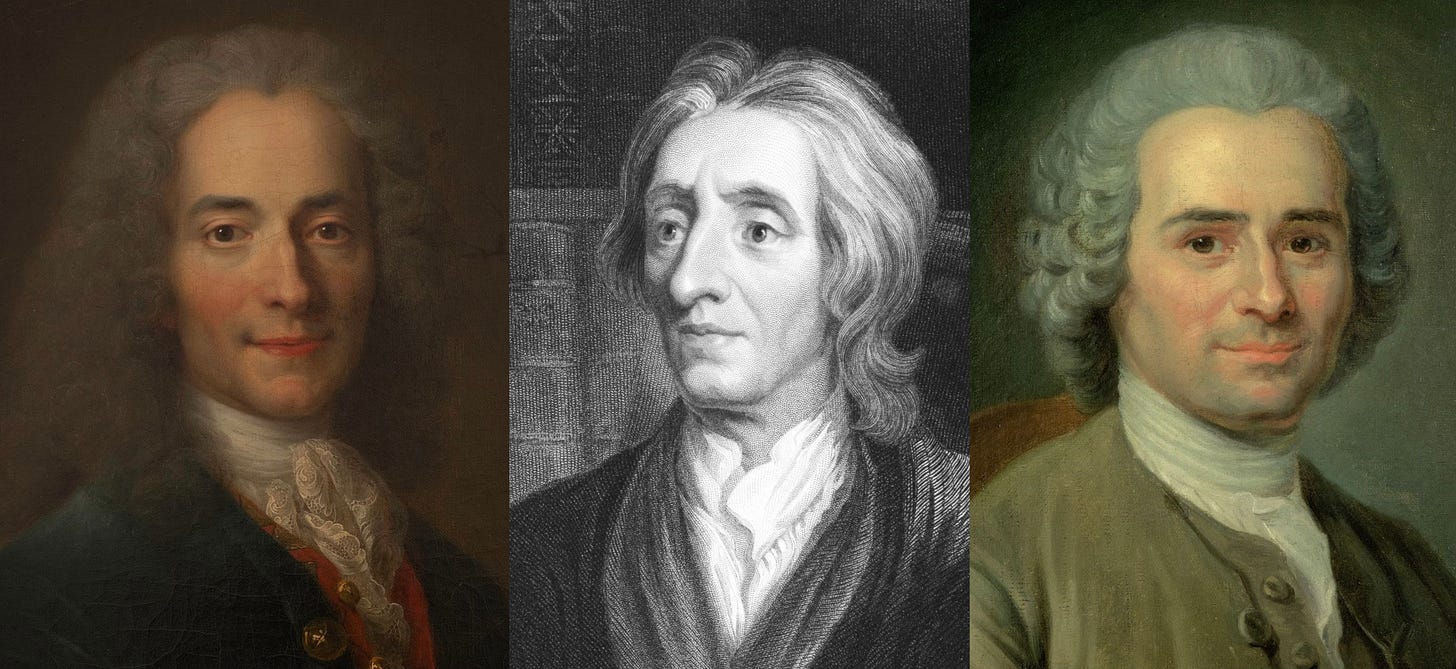Editor's Note: Today's article is paywalled, as a thank you to my paid subscribers (and as an invitation to join them, of course - I love doing this but it’s an investment of both time and money). Long time subscribers know that I'll post one or two such every month. Fret not, new subscribers, the large majority of what I publish will continue to be free.
What's behind the wall? A look at the erosion of the values that created America, the source of that erosion, and how it has brought us to a state where overt Jew-hatred is being spewed by the most educated young minds of our nation.
When was the last time you head the phrase "American Exceptionalism?" What was the context? Was it an avowal of the belief, or was it derogatory?
While definitions vary, I think this version from Brittanica.com is rather broadly accepted:
American exceptionalism, idea that the United States of America is a unique and even morally superior country for historical, ideological, or religious reasons.
While I'd not go so far as to say "unique," I do believe that the system of governance and its underlying tenets, as codified in the US Constitution, is an exceptional, and quite possibly singular, achievement in human history. That it has been emulated, at least in part, in many parts of the world is one testimonial. That the nation it produced stands as the one that has benefited its citizens - and the citizens of the world - more than any other in history is another.
What makes America "exceptional?" A basketful of ideas born of the Enlightenment. I'll dip into Britannica again for this:
[A] European intellectual movement of the 17th and 18th centuries in which ideas concerning God, reason, nature, and humanity were synthesized into a worldview that gained wide assent in the West and that instigated revolutionary developments in art, philosophy, and politics. Central to Enlightenment thought were the use and celebration of reason, the power by which humans understand the universe and improve their own condition. The goals of rational humanity were considered to be knowledge, freedom, and happiness.
While the first dictionary entry includes "religious reasons," the Enlightenment very specifically divorced religion from politics. As did the US Constitution. It was a radical notion in an era where hereditary monarchies were inextricably tied to religion and relied on it for legitimacy. The pace of improvement of human living standards that ensued has no parallel in history. It is the ideological set of reasons that led to Exceptionalism.
That's not to say that religion was barred from society. In fact, its free expression and practice were guaranteed by the very same document that removed it from politics, and today, America remains more religious than the rest of the West. Also guaranteed were other aspects of individual liberty, as well as protections for individuals from the government it created. Hand-in-hand with the tenets of individual liberty was the notion that we are all equal in liberty. That 'my right to swing my fist ends at the tip of your nose.'
We can call all this "Enlightenment values," and understand that the notion of American Exceptionalism rests upon, and indeed requires them.
Oh, and just in case it's not obvious, those Enlightenment values are foundational to libertarianism, the direct descendant of the "classical liberalism" that they comprise, and the gravitational body around which this blog revolves.
Somewhere along the line, the notion that Enlightenment values are superior to other societal and national value- and rule-sets ran into the Best-and-Brightest, who put a presumptive contempt for all things white-European together with a "the past sucks" reductionism to conjure up a bastardized version of moral relativism.
Keep reading with a 7-day free trial
Subscribe to The Roots of Liberty to keep reading this post and get 7 days of free access to the full post archives.


